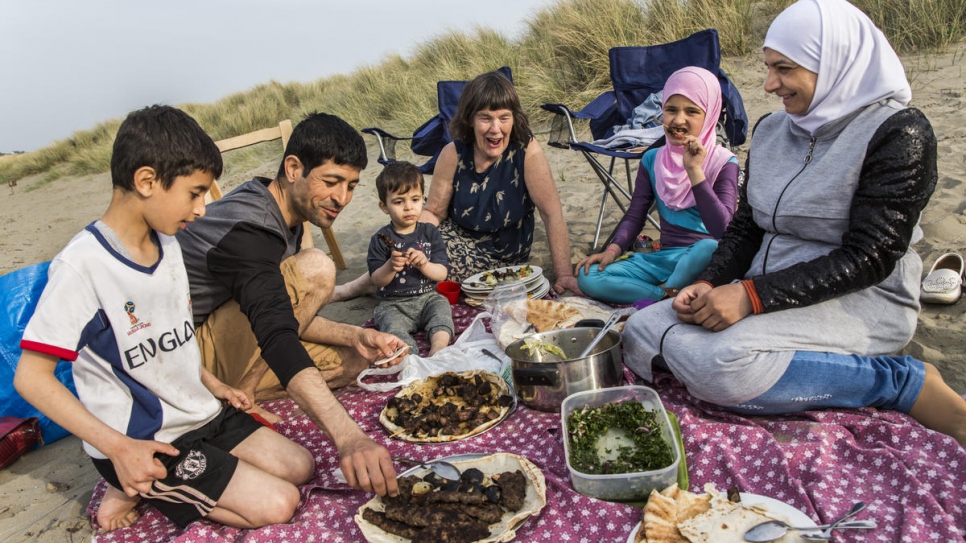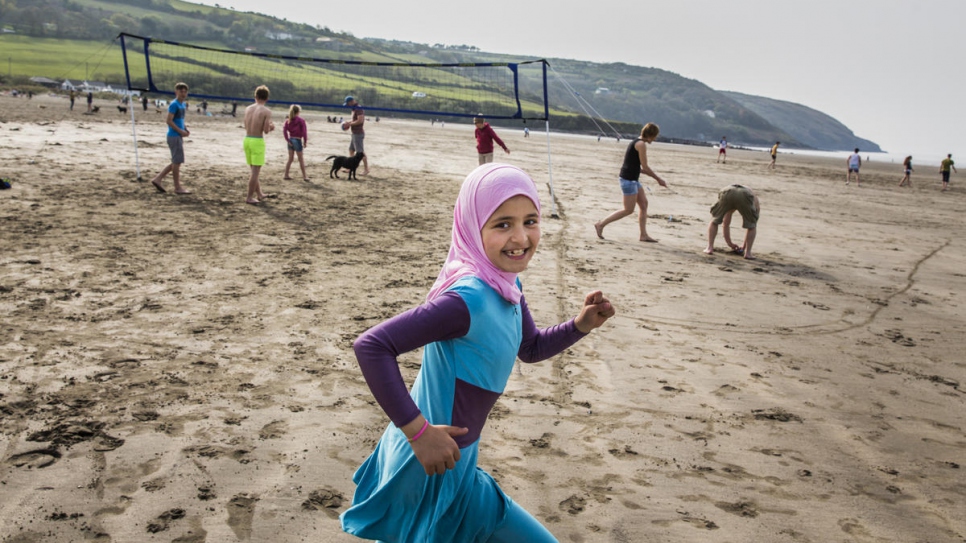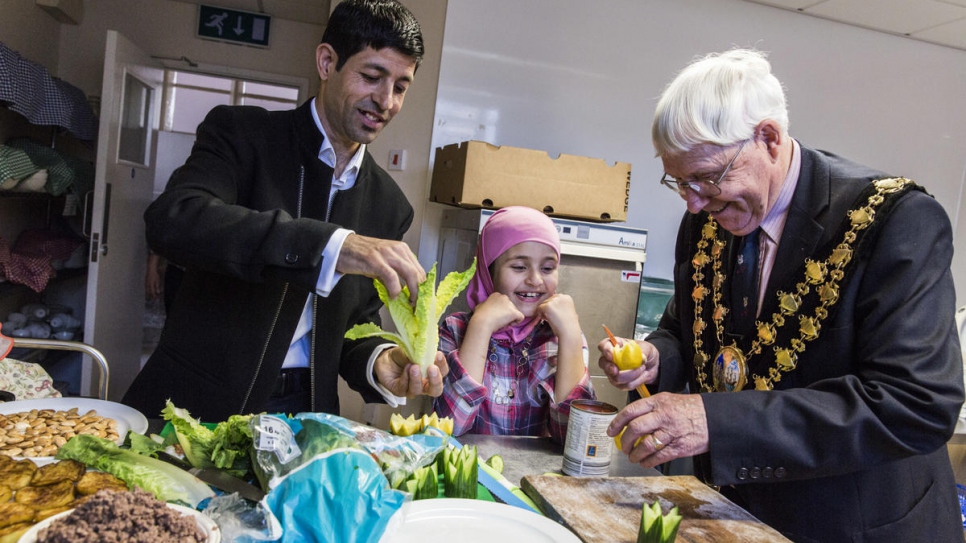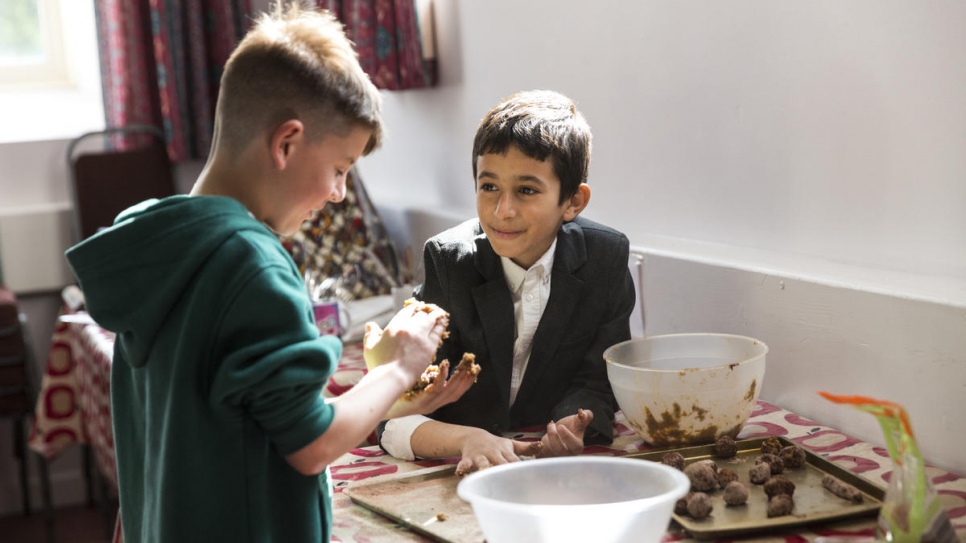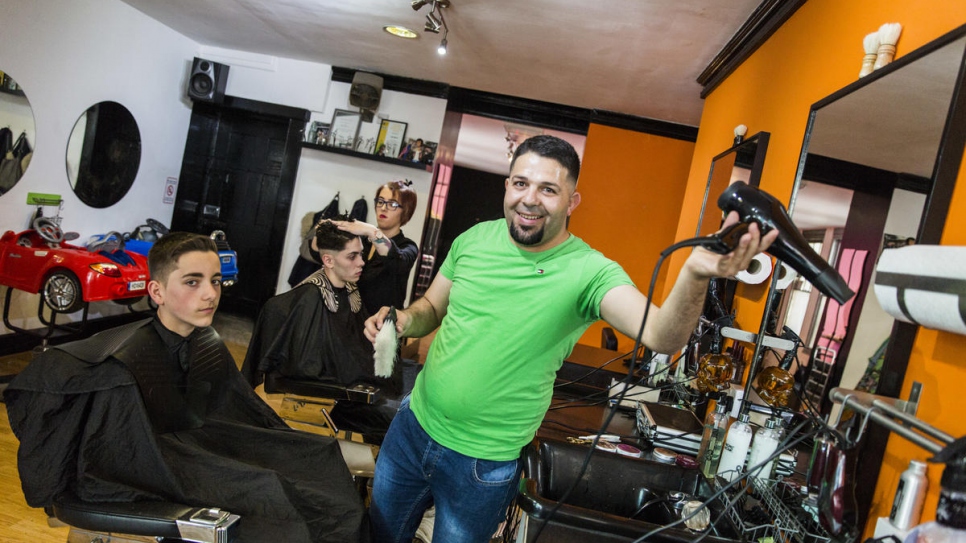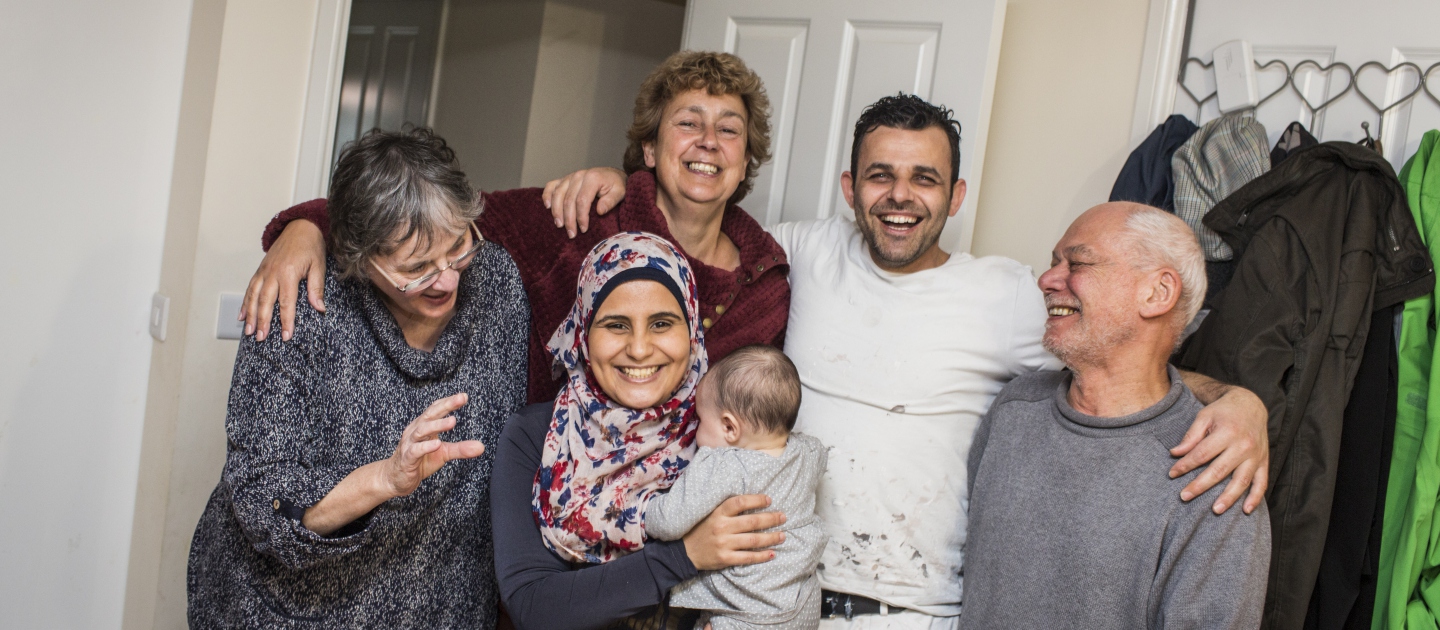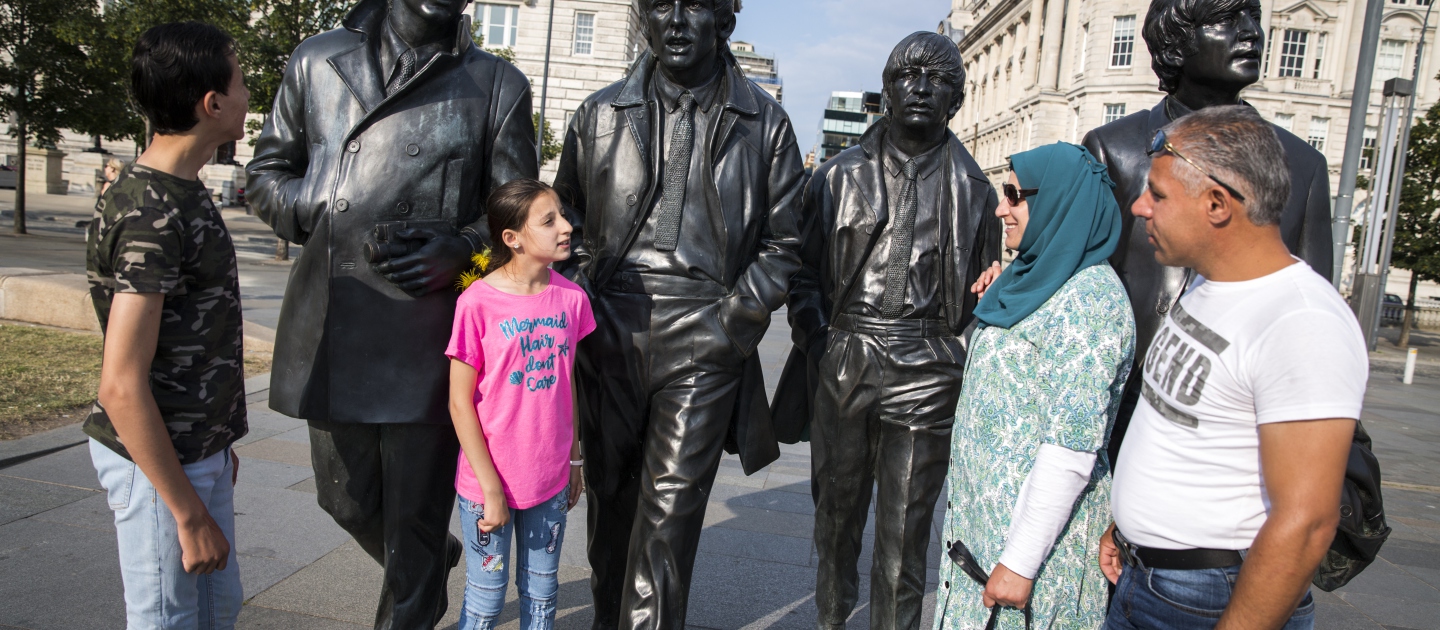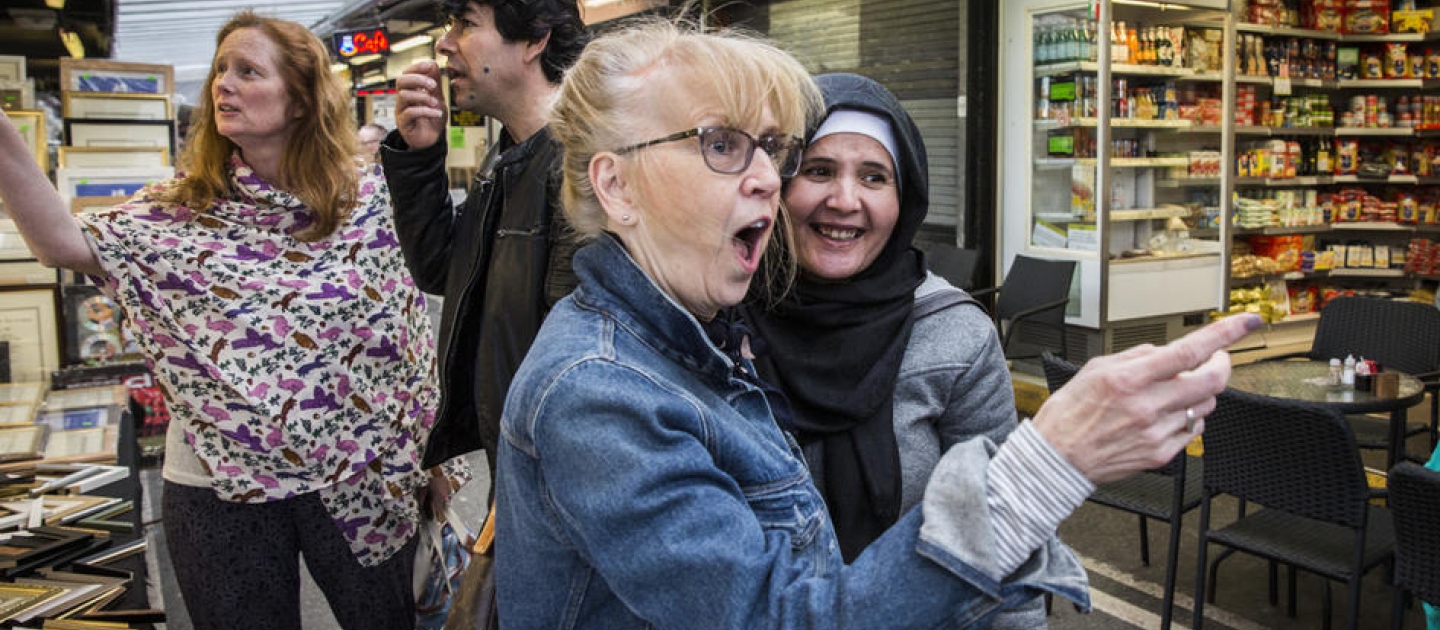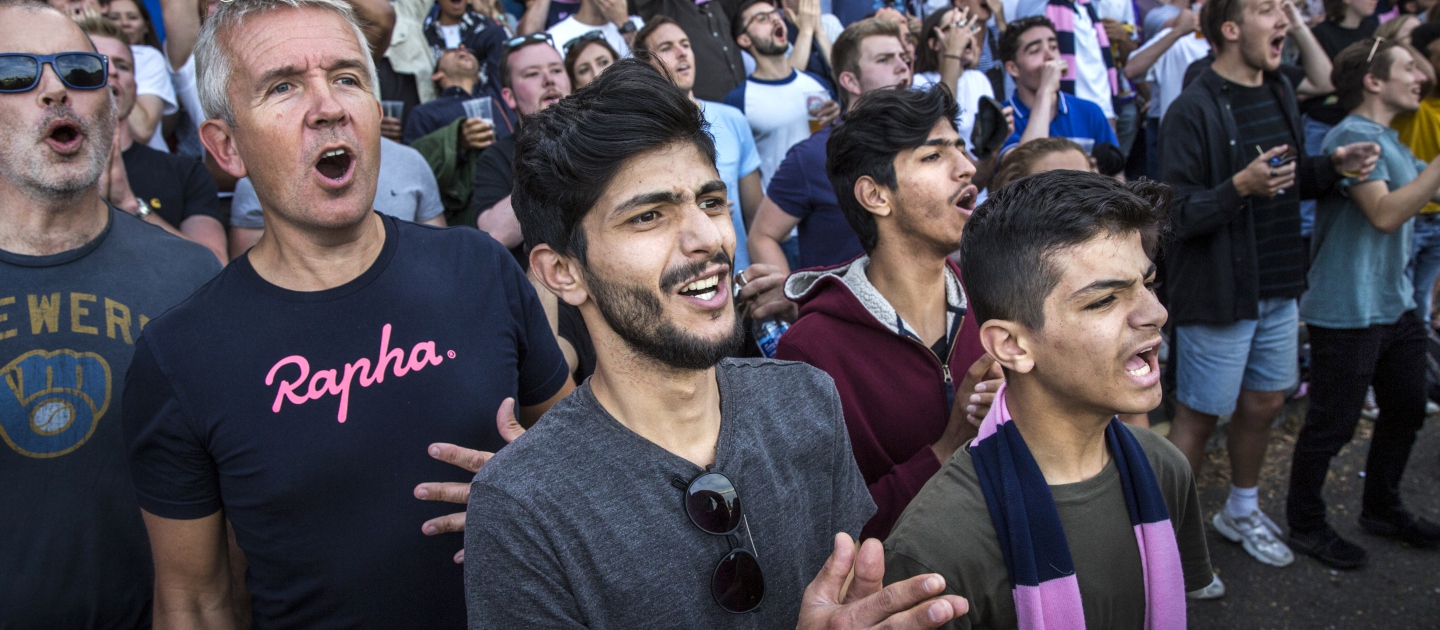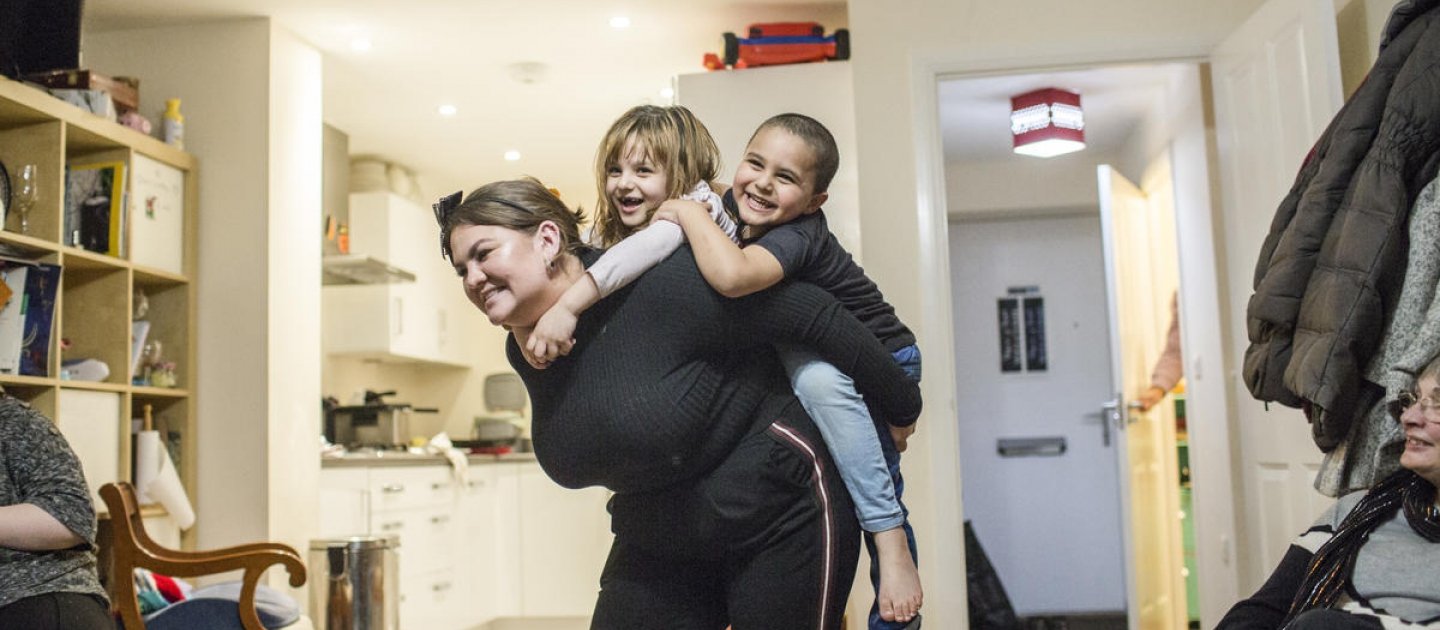CARDIGAN, WALES: Cardigan is the not the first place most people would associate with global displacement. A picturesque town on mouth of the River Teifi in West Wales, it was an important point of emigration to North America in the nineteenth century.
Recently though, this tranquil town, which strives to retain its Welsh heritage, has switched roles and offered a safe harbour to families who lives had been shattered by war, helping them to restart, and leave behind the pain of the past.
Muhaned Alchik, his wife Naheda and their children arrived in late 2017 from Syria by way of Lebanon under the UK’s Community Sponsorship scheme for refugees.
“I like everything in Wales. Cardigan’s great, the people are friendly, the shopping’s good, the weather is fine. It’s a lovely home,” Muhaned told UNHCR, the UN Refugee Agency, before the pandemic.
Muhaned has been attending college, studying building maintenance and construction. He hopes to find work as a carpenter and has been adding to his skills by volunteering with local businesses during the holidays, working at a local Bengali restaurant when shifts are available and tending an allotment. Naheda, who used to teach in Damascus, is studying English and considering teaching again in future.
The family were forced to flee Syria after family members were imprisoned. There, Muhaned worked in a travel agency and for a supermarket in Lebanon before being resettled to Wales.
Community sponsorship enables local groups to band together and support a refugee family move into their area, helping them navigate unfamiliar daily tasks and offering friendship as they put down new roots. It enables individuals to make a tangible difference to the lives of those forced to flee.
The government has committed to making refugees arriving via the community programme additional to those coming through established resettlement programmes, even though these are currently suspended due to the pandemic. Sponsor groups have emerged from the rural west of England to the heart of cities like Liverpool and London.
Muhaned and Naheda have three children Shadi, 8, Sara, 9 and Hadi, 1. The two elder children are happy in school and have learned to speak both English and Welsh, as well as maintaining their Arabic.
Muhaned and Shadi have been playing for the local side, Maesglas Football Club. Shadi, a goalkeeper, claimed he had made “60 saves” the previous week. They follow the fortunes of Liverpool and Manchester United as well as Real Madrid.
Away from work and school, life is still punctuated by trips to the mosque on Fridays and meetings with friends in the area.
The driving force behind welcoming the Alchiks to West Wales was Vicky Moller, a veteran activist. She spent almost three years gathering and mobilizing residents, forming a committee and charity and navigating the application process including arranging visits by the Home Office.
Part of Vicky’s approach was to walk door to door in town and discuss the arrival with locals before they came. The learnings from the first family were applied to the second family which arrived in 2019.
“The generosity of people is both moving and breathtaking” she said. “Community sponsorship is a lovely thing to do, it’s very rewarding, it’s a little kernel of perfection but it’s too small in Britain. This is too good to waste. It should spread.”
Since the Alchik’s arrived the community embraced a second family last year.
Ahmad Alhamody, wife Enas and children Rimas, Yazin and Rhaghad fled Syria after a rocket struck near their home in Idleb and Ahmad suffered shrapnel wounds. Family members were arrested.
To stay in Syria would have meant Ahmad joining the military. They moved to Lebanon and were subsequently resettled by UNHCR. Ahmad volunteered as a barber on the high street, where everyone seems to know him. He now has a paid job there.
“The people here have been so good,” Ahmad said. “They accepted us and treated us as friends. What I’ve seen here I see nowhere else. Nothing will make me leave.”
When he met UNHCR in Wales last year, he had been watching the national sport of rugby and swimming in the local pool with the family. Enas is writing and illustrating a Syrian cookery book and might study to become a nurse.
“The help we have received here has been amazing, now I can do a lot of the things on my own,” Ahmad said.
More recently, the couple decided to give back to the community during lockdown by cooking Middle Eastern dishes and distributing them to staff working on the frontlines of the COVID-19 response at care homes for vulnerable and disabled locals. Ahmad said it was their way of thanking the UK and Cardigan for the welcome that they had received.
Sponsorship groups start as a kind of support network but the ultimate aim is that the refugee family build autonomy as the months continue.
John Bennett, vicar of the local St Mary’s church, has also been involved. “The whole neighborhood has just embraced them – helped show them around and how things work. It’s been a real success story. It’s been character-building for the group, and the team has become self-reliant. It’s pulled the community together.”
Rowena Cane, who has experience in residential childcare and has 10 of her own children, has been helping with the health side and taking the family on trips locally to Fishguard.
For her, the main issue has been more about navigating the complexities of the volunteer group rather than the family.
“It’s nice to witness the joy. They feel indebted but they are so hospitable there’s always coffee and cake. Ultimately, we just want to leave them to be a family. They are so lovely, it’s a blessing to be around them.”
The community was so comfortable with the two families that they were close to agreeing to support a third family before the recent lockdown. That project can hopefully resume in the near future.
Rural Devon Community Comes Together to Embrace Syrian Family
Syria refugee family are sponsored by locals, helping them re-anchor after the pain of flight from war
'This has had Such a Ripple Effect': Volunteers Help Syrian Family Rebuild in Liverpool
'Tables have turned' as refugees offer support to sponsors during pandemic
'Mini Community' Forms in Peckham to help Refugee Family Rebuild
First meeting of volunteer group drew over 100 locals; They plan to sponsor another family, once conditions allow

